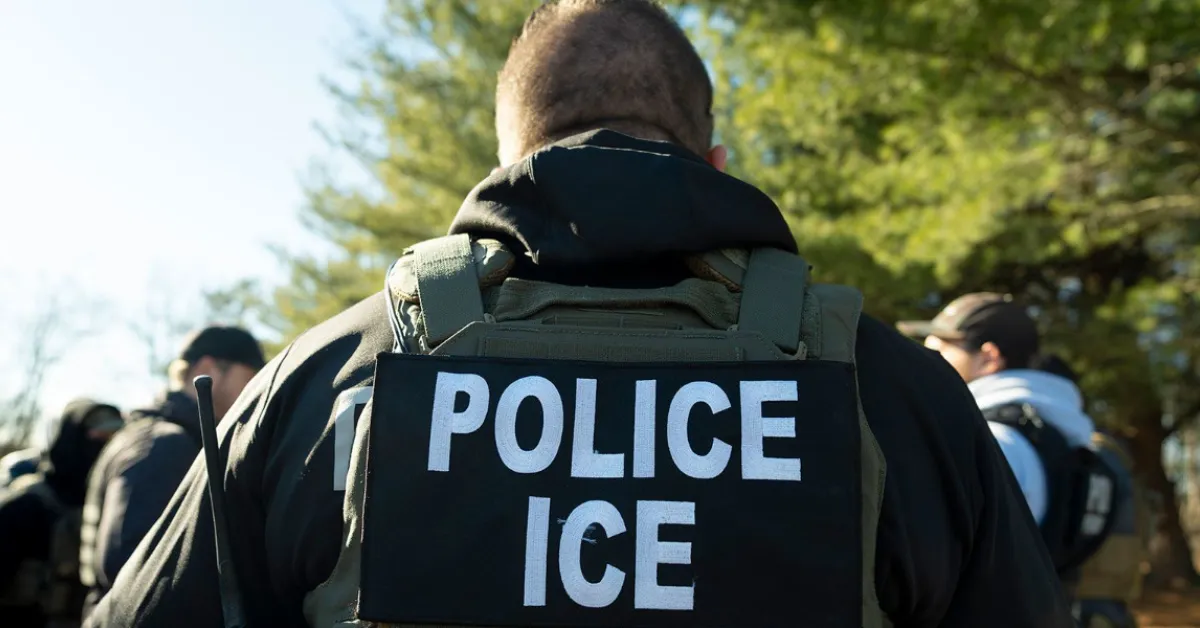ICE Criticized Over Deportation of Cancer-Stricken 4-Year-Old to Honduras

Last week's deportation of three US citizen children, including a 4-year-old undergoing treatment for metastatic cancer, alongside their mothers to Honduras, has ignited a wave of concern among civil rights organisations and immigration advocates.
The deportations, which occurred during routine check-ins with Immigration and Customs Enforcement (ICE) officials in Louisiana, have raised serious questions about procedural violations and the erosion of due process in immigration enforcement under the Trump administration. The cases, brought to light by the American Civil Liberties Union (ACLU), the National Immigration Project, and other advocacy groups, highlight what they perceive as a concerning trend of undermining legal protections for immigrant families.
According to Gracie Willis, an attorney and raids response coordinator with the National Immigration Project, these deportations vividly illustrate the erosion of due process. One of the cases involved a 2-year-old child, identified in court records as V.M.L., who was detained with her mother and 11-year-old sister during a routine meeting with ICE officials. Despite a judge setting a hearing date of May 16 to review the child’s deportation status, both the mother and child were deported to Honduras within 24 hours of being detained, according to an emergency petition filed in federal court.
In another incident, a mother and her two children, aged 4 and 7, were detained under similar circumstances during an Intensive Supervision Appearance Program (ISAP) check-in near New Orleans. The mother, who had resided in southern Louisiana for over a decade but lacked legal status, was instructed to bring her children and their passports to the meeting. Upon arrival, she was separated from her attorney, Erin Hebert, and detained with her children. Hebert reported that ICE officials provided no information on the family’s whereabouts until they were deported early Friday morning.
"My clients were deported within 24 hours of being detained, with no access to legal counsel," Hebert told CNN.
Both mothers had prior deportation orders issued in their absence, according to court filings. Willis explains that these orders often result from individuals missing a single court date, leading judges to issue deportation rulings. "Something prevented them from attending one court hearing," Willis said. "That single absence led to these deportation orders."
The government has claimed that the mother of the 2-year-old voluntarily requested to take her child with her to Honduras, citing a handwritten note allegedly authored by the mother. Tom Homan, Trump’s border czar, and Secretary of State Marco Rubio have echoed this assertion in public statements, emphasising the mother’s purported choice.
"If someone is unlawfully present in this country and has a child, there are two options: the parent and child leave together, or the child remains behind," Rubio stated during a television interview.
However, Willis refutes these claims, describing the handwritten note as a misrepresentation of the mother’s intentions. According to Willis, neither mother wanted their children, who are US citizens, to leave the country. The 4-year-old child, for instance, was receiving critical cancer treatment at the time of deportation. Both women also had family members residing in the United States, further underscoring the lack of necessity for deportation. These cases have sparked outrage among advocacy organisations, who argue that the deportations reflect systemic issues in the immigration enforcement process.
Critics contend that the swift removal of these families without adequate legal recourse undermines constitutional protections and sets a dangerous precedent. The deportations have also drawn attention to the challenges faced by immigrants who are part of the ISAP program, which requires them to attend regular check-ins with ICE officials. While designed as an alternative to detention, the program has been criticised for creating opportunities for enforcement actions that circumvent legal safeguards.
The cases of these deported children and their mothers serve as a stark reminder of the human cost of immigration enforcement policies and the urgent need for reform. The enforcement of immigration laws under the Trump administration has been marked by an increase in deportations and stricter enforcement policies. The Fifth Amendment to the US Constitution guarantees due process of law to all persons within the United States, regardless of immigration status. This includes the right to a fair hearing, the right to legal representation, and the right to appeal a decision.
The cases have also raised questions about the government's policy of separating families at the border. In 2018, the Trump administration implemented a "zero tolerance" policy that resulted in the separation of thousands of children from their parents at the border. This policy was widely condemned by human rights organisations and medical professionals, who argued that it caused significant trauma to children and parents.














Add new comment